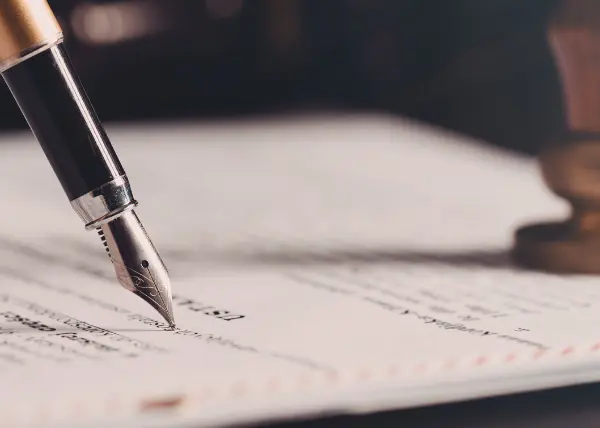
If you are considering creating a new will, you may be wondering what this means for your old will. Your will was created to provide clear instructions on what to do with your property after your death. But things can change, and you may want to make alterations to your will. Keeping your will updated is the best way to ensure your wishes are fulfilled after you pass. In this blog, we'll discuss whether a new will overrides an old will and other important considerations.
When you create a new will, it is implied that the new will overrides any prior will you have created. This means that any instructions outlined in the old will become invalid and will not be carried out after your death. It's important to note that proper steps must be taken to revoke any old wills, however.
Let's talk about adjusting your estate plan. The key is to use clear and precise language when making changes. Make sure any updates to your will are concise and any previous will should be completely revoked.
Understanding the revocation process and the importance of updating estate plans helps individuals ensure that their intentions are accurately reflected in their most recent will and testamentary documents.
In addition to the revocation of a will, there are certain other scenarios that can result in its invalidation. Knowing what these scenarios are reduces the chances of your will being contested or declared invalid.
If the testator (the person making the will) lacked the mental capacity to understand the nature and consequences of creating a will at the time of its execution, the document might be deemed invalid.
If the testator was unduly influenced or coerced by someone to create or modify the will in a way that does not reflect their true intentions, it might invalidate the document.
Wills created through fraudulent means or forged signatures can be voided. If the document's creation involved deceit or misrepresentation, it might be invalidated by the court.
Wills must adhere to specific legal formalities for proper execution, such as being witnessed and signed according to state laws. Failure to meet these requirements might render the will invalid.
Creating a new will or a codicil (an amendment to the will) that explicitly revokes the previous will can void the older document. Additionally, physically destroying the will with the intent to revoke it can invalidate the document.
Certain life events, such as marriage, divorce, or the birth of a child, might impact the validity of a will. Without updating the will to reflect these changes, parts of the document might be voided or become ineffective.
Understanding these factors can help individuals create and maintain wills that accurately reflect their intentions and minimize the risk of their wills being voided or invalidated. Seeking legal advice and drafting wills in compliance with state laws is recommended to ensure their validity and effectiveness.

Wondering if it's time to update your will or create a new one? Here are some common reasons why others may re-evaluate.
Keeping a will updated and reflective of the current circumstances and intentions of the testator ensures that their wishes are accurately carried out and helps avoid potential legal complications or disputes. Contact us today.
A codicil is a legal document that is used to make changes or adjustments to an existing will. It enables individuals to modify their existing will without having to create an entirely new document.
Typically, a new will implicitly revokes any prior wills. However, it's advisable to include a clause in the new will explicitly revoking all previous wills and codicils to avoid confusion.
It's wise to review your will periodically, especially after significant life events like marriage, divorce, birth, or major financial changes. Regular updates ensure that your will reflects your current circumstances and wishes.
Handwritten changes or additions (called codicils) can be made to a will. However, it's often advisable to create a new will altogether to avoid potential legal complexities or confusion.
Yes, it's essential to retain a copy of the old will along with the new one to provide a clear record of changes made over time. This can help in case of any future legal challenges or questions.
While it's possible to create a will without legal assistance, seeking advice from a qualified estate planning attorney can ensure that your new will complies with relevant laws and addresses all necessary considerations.
Our expert partner attorneys offer free consultations for your claim.